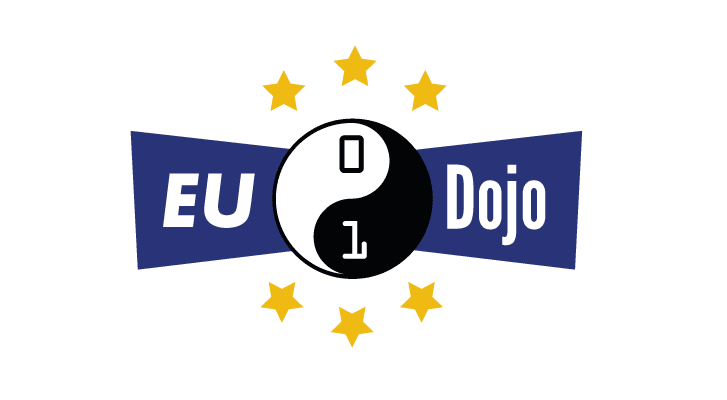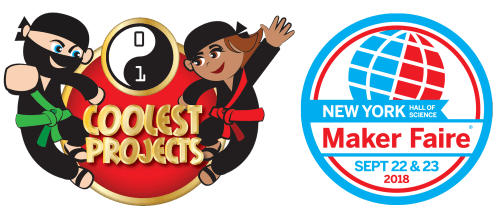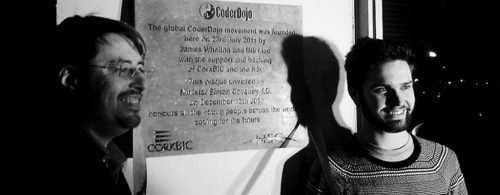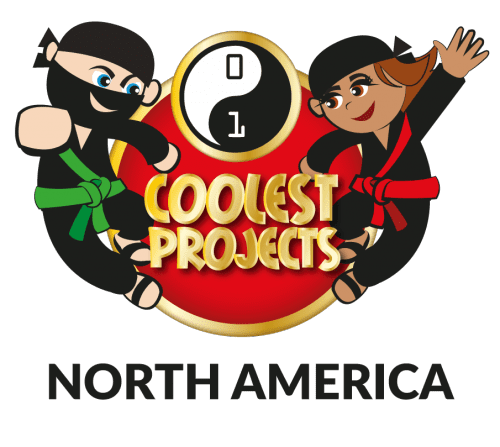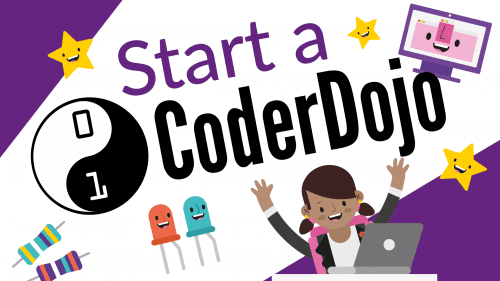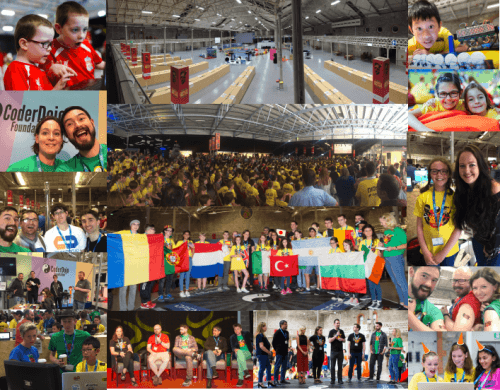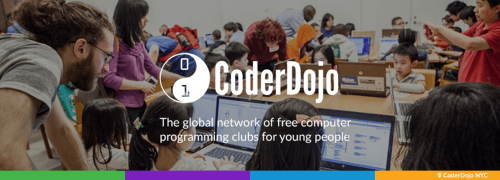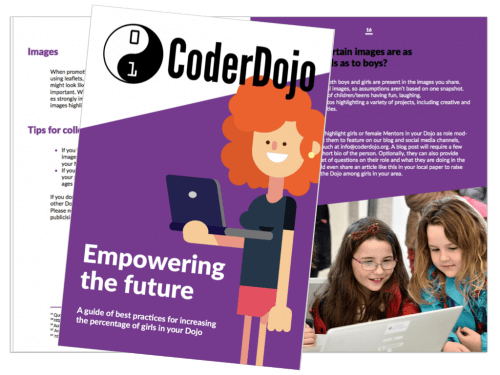Schlagwort: CoderDojo
-

Celebrating European Code Week with our annual EUDojo
Reading Time: 5 minutesOn Wednesday 17 October, CoderDojo held the sixth annual EUDojo in the European Parliament in Brussels. EUDojo 2018 Since last year’s event, CoderDojo has grown significantly: we have almost 500 new Dojos, and our network now spreads to over 100 countries! We organised this year’s EUDojo to coincided with the annual Europe…
-

Hang out with Raspberry Pi this month in California, New York, and Boston
Reading Time: 3 minutesThis month sees two wonderful events where you can meet the Raspberry Pi team, both taking place on the weekend of September 22 and 23 in the USA. And for more impromptu fun, you can also hang out with our Social Media Editor and fellow Pi enthusiasts on the East Coast on…
-

Happy 7th birthday, CoderDojo!
Reading Time: 6 minutesWhat is CoderDojo? CoderDojo is a global network of free informal clubs for young people aged 7-17 to learn how to code and create with technology. There are more than 1400 active Dojos in 75 countries, regularly attended by 40000 young people. Happy birthday, CoderDojo 🎂 Seven years ago today, on 23…
-

Join us at the Education Summit at PyCon UK 2018
Reading Time: 3 minutesPyCon UK 2018 will take place on Saturday 15 September to Wednesday 19 September in the splendid Cardiff City Hall, just a few miles from the Sony Technology Centre where the vast majority of Raspberry Pis is made. We’re pleased to announce that we’re curating this year’s Education Summit at the conference,…
-

Announcing Coolest Projects North America
Reading Time: 2 minutesThe Raspberry Pi Foundation loves to celebrate people who use technology to solve problems and express themselves creatively, so we’re proud to expand the incredibly successful event Coolest Projects to North America. This free event will be held on Sunday 23 September 2018 at the Discovery Cube Orange County in Santa Ana, California.…
-

Start a CoderDojo with our free online training
Reading Time: 3 minutesYou can now sign up to our newest free online course Start a CoderDojo to learn more about CoderDojo and how you can easily set up one of these free coding clubs for young people in your area. With less than two weeks until the course begins, we wanted to tell you…
-

Coolest Projects: for young people across the Raspberry Pi community
Reading Time: 4 minutesCoolest Projects is a world-leading annual showcase that empowers and inspires the next generation of digital creators, innovators, changemakers, and entrepreneurs. Young people come to the event to exhibit the cool ideas they have been working on throughout the year. And from 2018, Coolest Projects is open to young people across the…
-

CoderDojo: 2000 Dojos ever
Reading Time: 3 minutesEvery day of the week, we verify new Dojos all around the world, and each Dojo is championed by passionate volunteers. Last week, a huge milestone for the CoderDojo community went by relatively unnoticed: in the history of the movement, more than 2000 Dojos have now been verified! 2000 Dojos This is…
-

Join us for an evening of League of Legends
Reading Time: 3 minutesLast month, we shared the news that Riot Games is supporting digital literacy by matching 25% of sales of Championship Ashe and Championship Ward to create a charity fund that will benefit the Raspberry Pi Foundation and two other charities. Riot Games and CoderDojo CoderDojo and Riot Games have been developing the…
-

The CoderDojo Girls Initiative
Reading Time: 4 minutesIn March, the CoderDojo Foundation launched their Girls Initiative, which aims to increase the average proportion of girls attending CoderDojo clubs from 29% to at least 40% over the next three years. Six months on, we wanted to highlight what we’ve done so far and what’s next for our initiative. What we’ve…
